Transcription
1 of 3 pages
Please post as is blog #6324
state of emergency by Calvin Chism
T34897
S.Q.S.P.
San Quentin, Ca. 94974
THERE ARE TWO TYPES OF DEATH ROW PRISONERS: THOSE WAITING TO DIE; AND THOSE WRITING TO LIVE.
When your life is not on the scale's of "just us" Let's take a mock election. When the alegded free
world has two choice's, nuclear war or a woman choice to sit as comander & chief, while children
and people with severe mental health issues are being subjected to creed & unusual punishment/double
jeopardy they thought a mock election was a funny thing to do. Men just food for thought.
Those name's & number's of men who participated power was null & void w/a joke when we could have stood
as one voice in solidarity and used our gathered resources to have our voice heard & counted in so many
way via social media.
So please post this important notice as a state of emergency.
62 & 66 strips a human being of their fundamental right to be treated fair & impartial and given the
right to redress at a state & (?) level Outer (?) his life hangs on the scale's that authority be
given to every inmate who request good time credit and shows good merit & the desire to be noticed.
Like an appeal. Cause a man who works for the betterment of himself is a better man because of the
work it took to get there.
Enhancements on all criminal cases should be held to review anually.
Juveniles should be subject to screening like a grand jury to be tried as an adult.
So post this share this post maybe it lands on the right desk. Send it to at least one person and
if you have the time send me a copy and your responce.
In solidarity
Mr. Calvin Chism
T-34897
SQSP
San Quentin Ca 94974
San Quentin published this in its newspaper...
(follows two copies from newspaper)
Other posts by this author
|
2020 feb 8
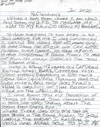
|
2019 jul 2
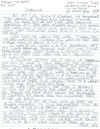
|
2018 jan 27

|
2017 oct 15
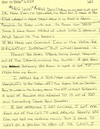
|
2017 jan 21

|
2017 jan 15

|
More... |


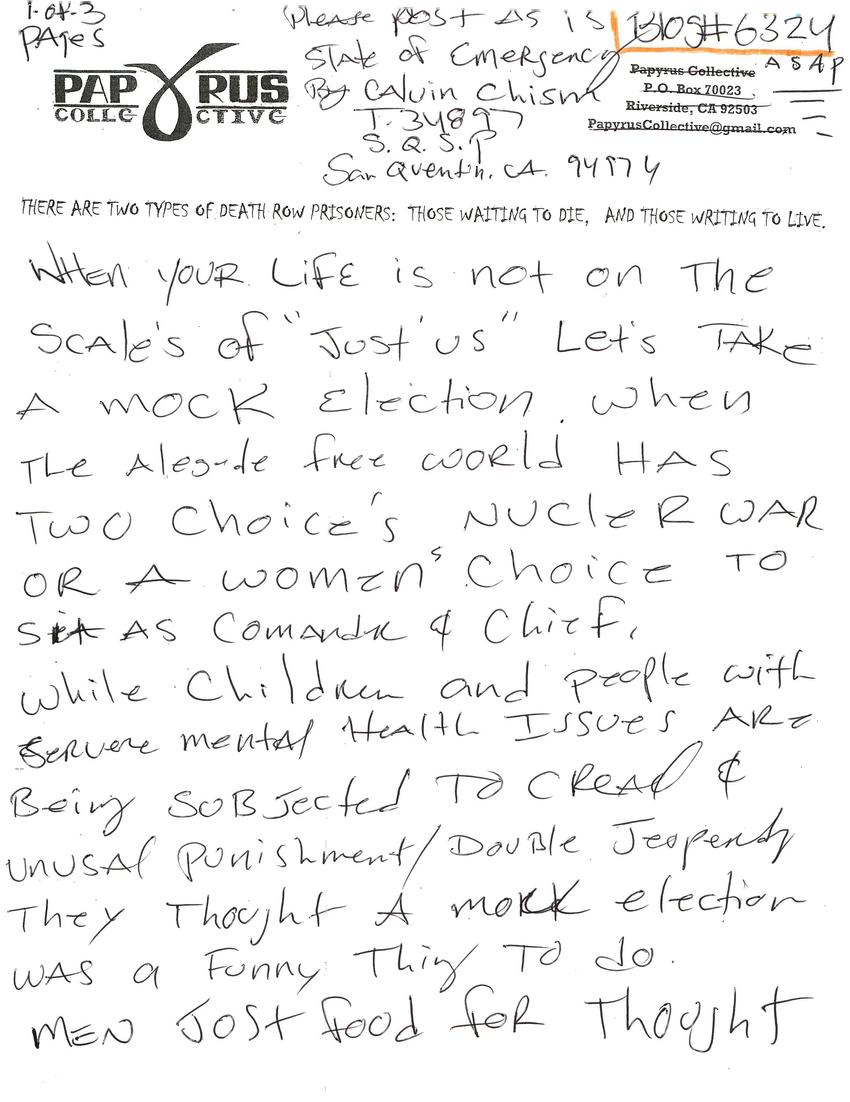
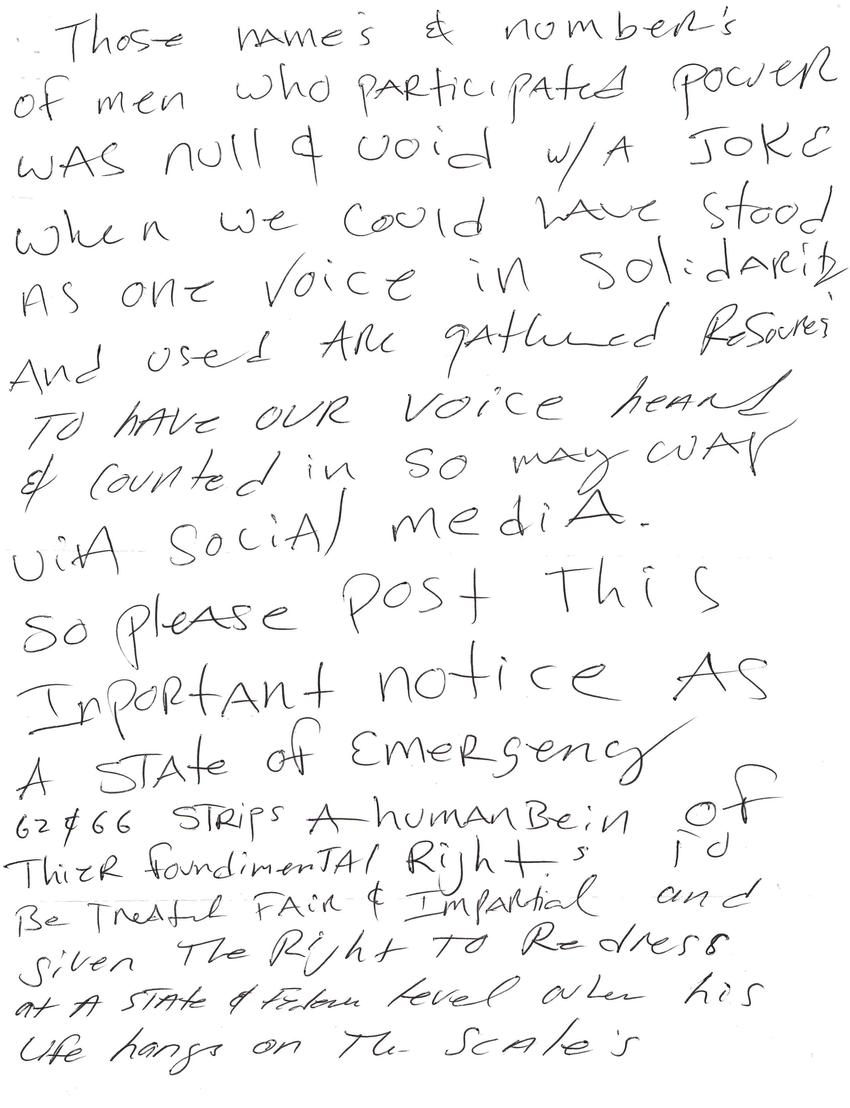
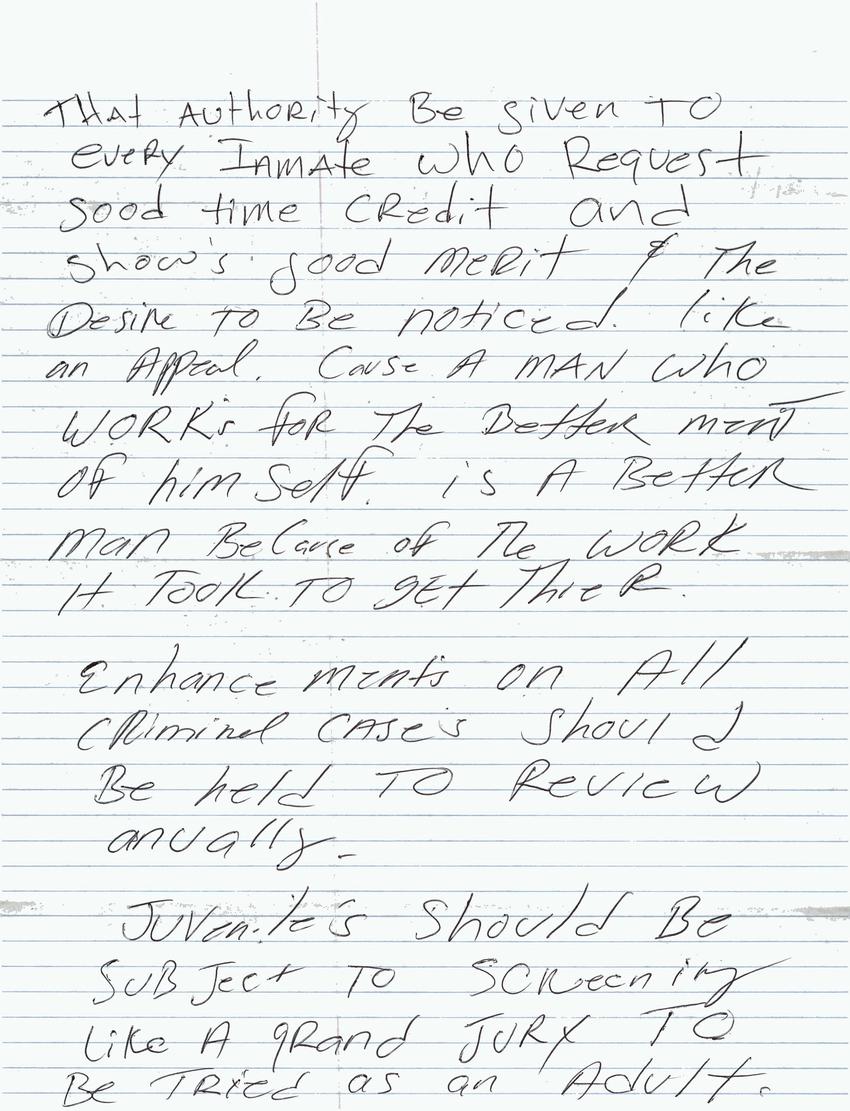
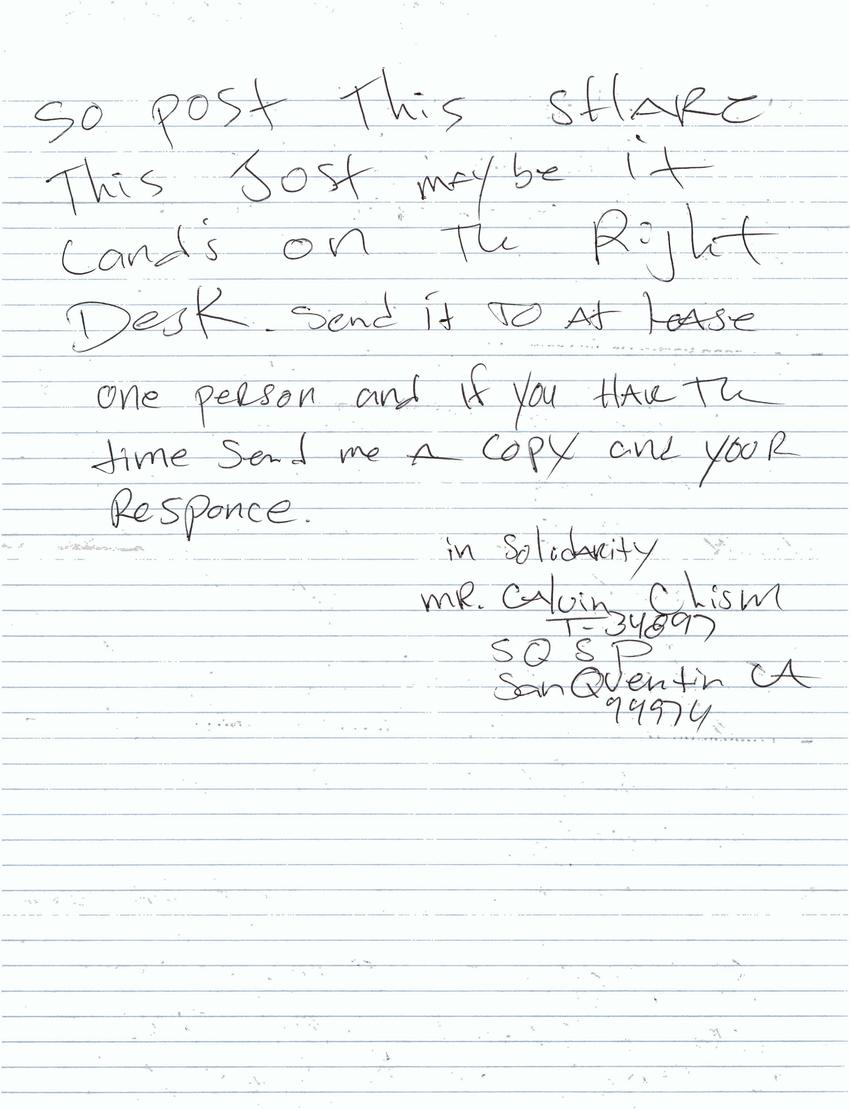
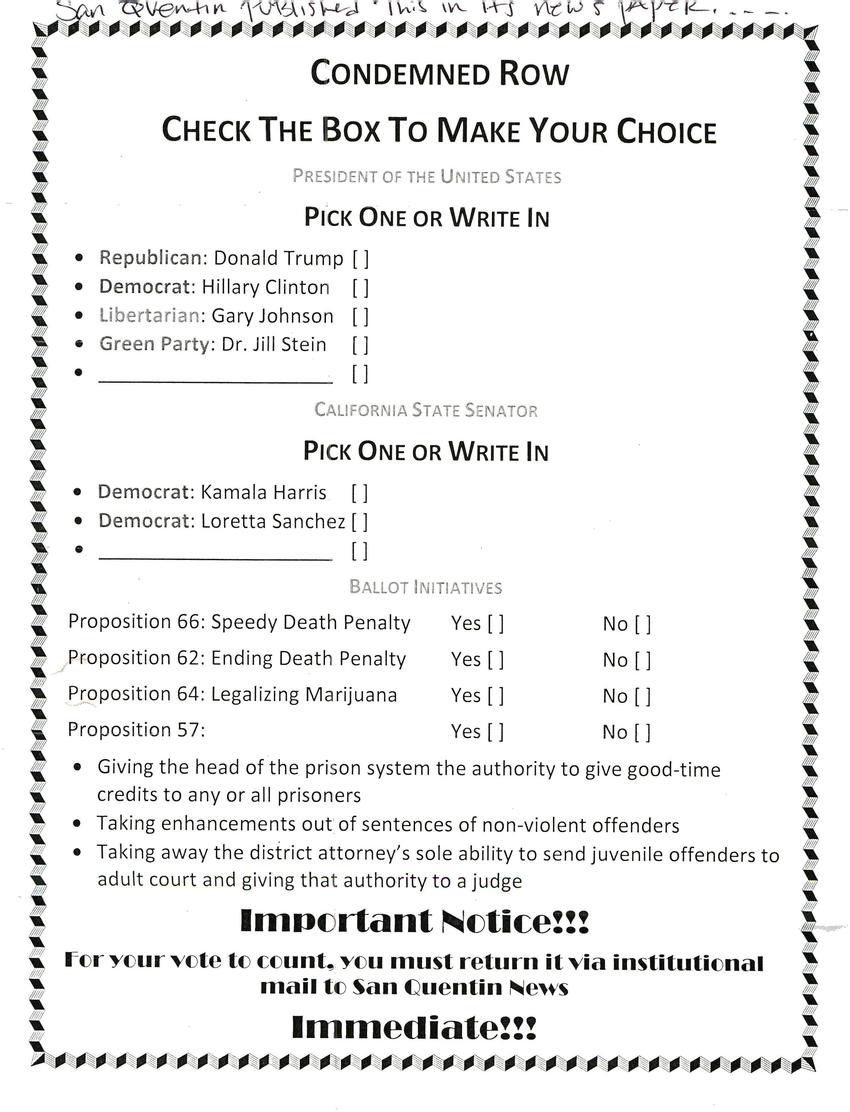


Replies (8)
You have an interestig name, Calvin. Because in Calvinism, there was a lot of schism. You name is almost a tribute to that. No offense intended, just an observation. Have a good day.
Julia
no it took me also really long, and I hope you don't mind to much me responding here, as I'll just give you some information on Calvinism I picked from the internet:
"How Did Calvinism Affect Reformation?
John Calvin is a principal figure of the Protestant Reformation. Martin Luther, along with Henry VIII, separated Protestantism from the Roman Catholic Church, and Calvin's doctrines and theology created profound changes within the fledgling Protestant churches. In particular, Calvin led Protestantism to insert itself into state control and secular affairs, and his ideas about salvation and whether it is predestined by God or open to all, are still debated in contemporary times.
Protestant Reformation
The Protestant Reformation had three components: Lutheran, Reformed and English. The Lutheran and English Reformations are a product of schism with the Roman Catholic Church. The Reformed, or Calvinist, Reformation resulted from theological differences among early Protestants. Reformation began in the early 16th century when the German monk Martin Luther (1483-1546) challenged papal authority. Luther proposed a revolutionary idea that people can seek salvation without mediation by religious authority. Soon after, King Henry VIII of England parted from the Roman Catholic Church because the pope would not grant him a divorce from Catherine of Aragon, and the Church of England was born. In the 1530s, John Calvin, heavily influenced by the Swiss reformer, Ulrich Zwingli, diverged from the Lutherans over the concept of predestination and created the Reformed branch of Protestantism.
John Calvin
John Calvin (1509-1564), a French theologian, brought profound changes to the Reformation. By 1530, he had become an aggressive advocate of Protestantism, and in 1536, Calvin went to Geneva to help the city split from the Roman Catholic Church. However, Calvin's reforms were not welcome by those in power, and he fled the city in 1538. Upon his return in 1541, he instituted radical reform into church structure and exerted religious authority over the state. His reforms quickly became known as Calvinism and spread throughout Europe, where they heavily influenced Protestant reforms.
Reformed Church
Calvin is the father of the Reformed Church, which asserts the Calvinist doctrine that God is the absolute authority and believes in predestined salvation for a select few. The early reforms instituted by Calvin in Geneva called for religious authority over moral behavior, but at the same time sought to make religious authority and clergy independent of state control. Calvin's reformed theology has five principle points: the total depravity of humans; predestination; limited atonement; irresistible grace; and perseverance of the saints.
In 1536, Calvin published "Institutes of the Christian Religion" and established his Reformed Protestantism in Geneva. He wanted to create the ideal Protestant community in much the same way the Roman Catholic Church established its seat of power in Rome. Calvin urged the separation of church and state in Geneva, but he gave ultimate control to the church. He influenced the Reformation in two important ways. First, his concept of predestination and his popular postulate that God is the supreme authority became the theological hallmarks of future Protestant denominations such as the Huguenot, Puritan, Presbyterian, and the Reformed churches. Second, he influenced future Protestant-led governments to incorporate church authority into the affairs of the state."